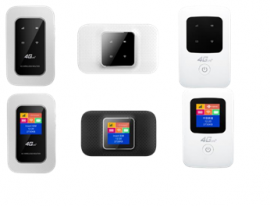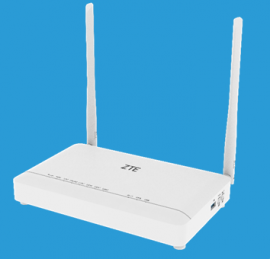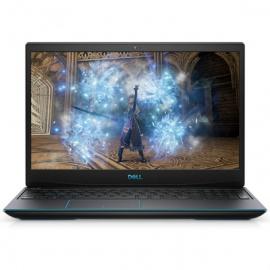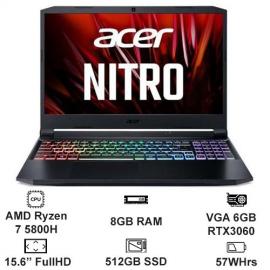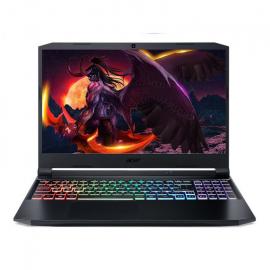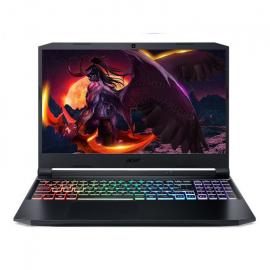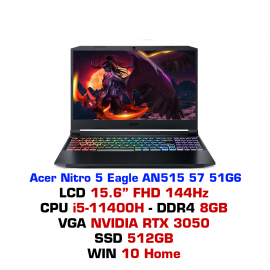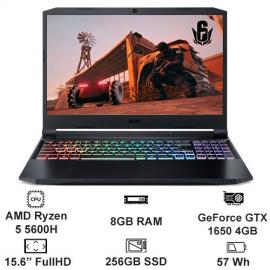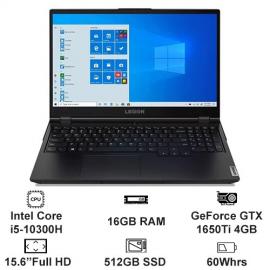Figure 1. Cisco Nexus 7700 Switches
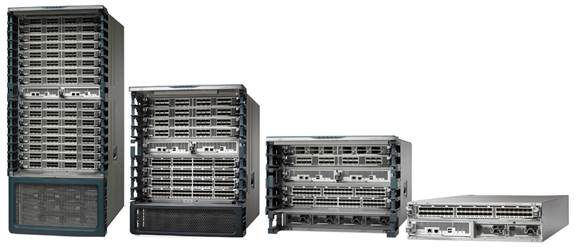
All Cisco Nexus 7000 Series chassis use a passive mid-plane architecture, providing physical connectors and copper traces for interconnecting the fabric modules and I/O modules for direct data transfer. All inter-module switching is performed via crossbar fabric ASICs on the individual I/O modules and fabric modules.
A scalable, fully distributed fabric architecture uses up to six fabric modules to deliver up to 1.32 Tbps per slot of bandwidth in the Cisco Nexus 7700 6-, 10-, and 18-slot switches on day one. In case of the Cisco Nexus 7700 2‑slot chassis, the fabric modules are not required since it uses a single I/O module. The midplane design on the 2‑, 6-, 10-, and 18-slot chassis supports flexible technology upgrades as your needs change, providing ongoing investment protection. Future fabric modules will allow higher bandwidth capabilities on the platform.
Cisco Nexus 7700 2-Slot Switch
● The Cisco Nexus 7700 2-Slot Switch, with one I/O module slots, supports up to 48 x 1 and 10 Gigabit Ethernet ports, 24 x 40 Gigabit Ethernet ports, or 12 x 100 Gigabit Ethernet ports, to meet the demands of small campus and data center deployments in a compact 3 rack units (RU) footprint.
● The Cisco Nexus 7700 2-Slot Switch has one dedicated half-slot supervisor.
● The Cisco Nexus 7700 2-slot chassis does not include any fabric modules as it has a single module only. The system is capable of supporting all current and future Cisco Nexus 7700 modules at full line-rate switching capacity.
● Front-to-back airflow helps ensure that the Cisco Nexus 7702 addresses the requirement for hot-aisle and cold-aisle deployments, to help provide efficient cooling.
● The system uses one fan tray for cooling. The fan tray is composed of three independent variable-speed fans that automatically adjust to the ambient temperature, helping to reduce power consumption in
well-managed facilities while supporting optimum operation of the switch.
● The system supports an optional door and air filter to help ensure clean airflow through the system. The addition of the air filter satisfies Network Equipment Building Standards (NEBS) requirements.
● The Cisco Nexus 7700 2-Slot Switch can have up to two 3- or 3.5-kilowatt (KW) power supplies. The redundant power supply configuration provides more flexibility in power redundancy configuration.
● The I/O module, supervisor module, and power supplies are accessible from the front, and the fan tray is accessible from the back of the chassis.
● The I/O module, supervisor module, and power supplies are inter-changeable across all Cisco Nexus 7700 chassis.
Cisco Nexus 7700 6-Slot Switch
● The Cisco Nexus 7700 6-Slot Switch, with up to four I/O module slots, supports up to 192 x 1 and 10 Gigabit Ethernet ports, 96 x 40 Gigabit Ethernet ports, and 48 x 100 Gigabit Ethernet ports, meeting the demands of small to medium data center deployments in a compact 9 Rack Units (RU) footprint.
● The Cisco Nexus 7700 6-Slot Switch has two dedicated half-slot supervisors to provide full redundancy, stateful supervisor switchover, and hitless In-Service Software Upgrade (ISSU) capabilities.
● The Cisco Nexus 7706 has six fabric module slots to provide simultaneously active fabric channels to each of the I/O and supervisor modules. Through the parallel forwarding fabric architecture, the Cisco Nexus 7706 can achieve 10.5 Tbps of forwarding capacity or more.
● Front-to-back airflow helps ensure that the Cisco Nexus 7706 addresses the requirement for hot-aisle and cold-aisle deployments to help provide efficient cooling.
● The system uses three redundant fan trays for cooling. Each fan tray is composed of independent
variable-speed fans that automatically adjust to the ambient temperature, helping reduce power consumption in well-managed facilities while helping enable optimum operation of the switch. The system also allows hot swapping of fan trays without negatively affecting the system.
● The system supports an optional door and air filter to help ensure clean airflow through the system.
The addition of the air filter satisfies Network Equipment Building Standards (NEBS) requirements.
● The Cisco Nexus 7700 6-Slot Switch can have up to four 3- or 3.5-(kW) power supplies. The smaller power supply configuration provides more flexibility and greater control in power provisioning. The four power supply bays are designed for future growth.
● I/O modules, supervisor modules, and power supplies are accessible from the front, and fabric modules and fan trays are accessible from the back of the chassis.
Cisco Nexus 7700 10-Slot Switch
● The Cisco Nexus 7700 10-Slot Switch, with up to eight I/O module slots, supports up to 384 x 1 and 10 Gigabit Ethernet ports, 192 x 40 Gigabit Ethernet ports, and 96 x 100 Gigabit Ethernet ports, to meet the demands of large data center deployments.
● The Cisco Nexus 7700 10-Slot Switch has two dedicated half-slot supervisors to provide full redundancy, stateful supervisor switchover, and hitless In-Service Software Upgrade (ISSU) capabilities.
● The Cisco Nexus 7710 has six fabric module slots to provide simultaneously active fabric channels to each of the I/O and supervisor modules. Through the parallel forwarding fabric architecture, the Cisco Nexus 7710 can achieve 21 Tbps of forwarding capacity or more.
● Front-to-back airflow helps ensure that the Cisco Nexus 7710 addresses the requirement for hot-aisle and cold-aisle deployments to help provide efficient cooling.
● The system uses three redundant fan trays for cooling. Each fan tray is composed of independent
variable-speed fans that automatically adjust to the ambient temperature, to help reduce power consumption in well-managed facilities while helping to enable optimum operation of the switch. The system also allows hot swapping of fan trays without negatively affecting the system.
● The system supports an optional door and air filter to promote clean airflow through the system.
The addition of the air filter satisfies Network Equipment Building Standards (NEBS) requirements.
● The Cisco Nexus 7700 10-Slot Switch can have up to eight 3- or 3.5-(kW) power supplies. The smaller power supply configuration provides more flexibility and greater control in power provisioning. The eight power supply bays are designed for future growth, and most common configurations do not require the use of all power supply units for redundant power configurations.
● I/O modules, supervisor modules, and power supplies are accessible from the front, and fabric modules and fan trays are accessible from the back of the chassis.
Cisco Nexus 7700 18-Slot Switch
● The Cisco Nexus 7700 18-Slot Switch, with up to 16 I/O module slots, supports up to 768 x 1 and 10 Gigabit Ethernet ports, 384 x 40 Gigabit Ethernet ports, and 192 x 100 Gigabit Ethernet ports, to meet the demands of the largest data center deployments.
● The Cisco Nexus 7700 18-Slot Switch has two dedicated half-slot supervisors to provide full redundancy, stateful supervisor switchover, and hitless In-Service Software Upgrade (ISSU) capabilities.
● The Cisco Nexus 7700 18-Slot Switch has six fabric module slots to provide simultaneously active fabric channels to each of the I/O and supervisor modules. Through the parallel forwarding fabric architecture, the Cisco Nexus 7700 18-Slot Switch can achieve 42 Tbps of forwarding capacity or more.
● Front-to-back airflow helps ensure that the Cisco Nexus 7700 18-Slot Switch addresses the requirement for hot-aisle and cold-aisle deployments to support efficient cooling.
● The system uses three redundant fan trays for cooling. Each fan tray is composed of independent variable‑speed fans that automatically adjust to the ambient temperature, to reduce power consumption in well-managed facilities while helping to enable optimum operation of the switch. The system also allows hot swapping of fan trays without negatively affecting the system.
● The system supports an optional door and air filter to help ensure clean airflow through the system. The addition of the air filter satisfies NEBS requirements.
● The Cisco Nexus 7700 18-Slot Switch can have up to sixteen 3- or 3.5-kW power supplies. The smaller power supply configuration provides more flexibility and greater control in power provisioning. The 16 power supply bays are designed for future growth, and most common configurations do not require the use of all power supply units for redundant power configurations.
● I/O modules, supervisor modules, and power supplies are accessible from the front, and fabric modules and fan trays are accessible from the back of the chassis.
Common Components on Cisco Nexus 7700 Switches
All Cisco Nexus 7700 Switches have the following components:
● An integrated cable management system, custom designed for the 2-, 6-, 10-, and 18-slot switches, supports the cabling requirements of a fully configured system at either or both sides of the switch, providing outstanding flexibility. All system components can easily be removed with the cabling in place, providing ease of maintenance with no disruption.
● A series of LEDs at the top of the chassis (except in case of the Cisco Nexus 7700 2-slot chassis) provides a clear summary of the status of the major system components, alerting operators to the need to conduct further investigation. These LEDs report the power supply, fan, fabric, supervisor, and I/O module status.
Energy-Efficient Design
The Cisco Nexus 7700 Switches use 3.5-kW and 3-kW power supplies that are 96 and 90 percent efficient or greater, so less power is dissipated as heat, and more power is available for the system to use than with typical power supplies. These high-efficiency power supplies allow smaller power configuration and provide flexible power provisioning.
The fan trays in the switches have variable speed fans that adjust to compensate for changing thermal characteristics and use less power at typical operating conditions. Standard fan trays are included as part of the Nexus 7700 2-, 6-, 10-, and 18-slot chassis. The Nexus 7700 6-, 10-, and 18-slot chassis also support optional generation 2 fan trays. All fan trays provide NEBS compliance in combination with the rest of the components of the chassis for specific system configurations. Additionally, the generation 2 fan trays provide NEBS Level-3 acoustic compliance and short term operation at 55C for the Nexus 7700 6-, 10-, and 18-slot chassis if configured with the Nexus 7700 M3 100G I/O modules or future I/O modules.
Consolidation of multiple switches to Cisco Nexus 7700 Switches is made possible by the high density of ports on the switches combined with high-performance device virtualization, comprehensive reliability, and availability features. This consolidation capability provides multiple benefits such as reduced power, cooling, and space requirements to save on costs.
Product Specifications
Table lists the product specifications for the Cisco Nexus 7700 Switches.
Table. Product Specifications
|
Item
|
Specification
|
|
|
Cisco Nexus 7700 2-Slot Chassis
|
Cisco Nexus 7700 6-Slot Switch
|
Cisco Nexus 7700 10-Slot Switch
|
Cisco Nexus 7700 18-Slot Switch
|
|
Port count
|
48 x 10 Gbps, 24 x 40 Gbps, and 12 x 100 Gbps
|
192 x 10 Gbps, 96 x 40 Gbps, and 48 x 100 Gbps
|
384 x 10 Gbps, 192 x 40 Gbps, and 96 x 100 Gbps
|
768 x 10 Gbps, 384 x 40 Gbps, and 192 x 100 Gbps
|
|
Product compatibility
|
● Supports all Cisco Nexus 7700 switch modules except the following:
● N77-F248XP-23E
● Does not use fabric modules
|
● Supports all Cisco Nexus 7700 Series Supervisor and I/O modules
● Supports Cisco Nexus 7700 Series Fabric-2 modules
|
● Supports all Cisco Nexus 7700 Series Supervisor and I/O modules
● Supports Cisco Nexus 7700 Series Fabric-2 modules
|
● Supports all Cisco Nexus 7700 Series Supervisor and I/O modules
● Supports Cisco Nexus 7700 Series Fabric-2 modules
|
|
Software compatibility
|
Cisco NX-OS Software Release 7.2 or later
|
Cisco NX-OS Software Release 6.2.6 or later
|
Cisco NX-OS Software Release 6.2.2 or later
|
Cisco NX-OS Software Release 6.2.2 or later
|
|
Options
|
● Door air filter
● Lockable front module doors
|
● Door air filter
● Lockable front module doors
|
● Door air filter
● Lockable front module doors
|
● Door air filter
● Lockable front module doors
● Power supply center cable management
|
|
System forwarding capacity
|
No fabric modules
All I/O modules are line rate
|
21 Tbps
|
42 Tbps
|
83 Tbps
|
|
Max local switching capacity*
|
1.2 Tbps
|
1.2 Tbps
|
1.2 Tbps
|
1.2 Tbps
|
|
Max inter-slot switching capacity*
|
n/a
|
1.2 Tbps
|
1.2 Tbps
|
1.2 Tbps
|
|
Reliability and availability
|
Online insertion and removal (OIR) of redundant power supplies
|
OIR of all redundant components: supervisor and fabric modules, power supplies, and fan trays
|
OIR of all redundant components: supervisor and fabric modules, power supplies, and fan trays
|
OIR of all redundant components: supervisor and fabric modules, power supplies, and fan trays
|
|
MIBs
|
Supports Simple Network Management Protocol Version 3 (SNMPv3), v2c, and v1 (see Cisco NX-OS Software release notes for details about specific MIB support)
|
Supports SNMPv3, v2c, and v1 (see Cisco NX-OS Software release notes for details about specific MIB support)
|
Supports SNMPv3, v2c, and v1 (see Cisco NX-OS Software release notes for details about specific MIB support)
|
Supports SNMPv3, v2c, and v1 (see Cisco NX-OS Software release notes for details about specific MIB support)
|
|
Network management
|
Cisco Data Center Network Manager (DCNM)
|
Cisco Data Center Network Manager (DCNM)
|
Cisco Data Center Network Manager (DCNM)
|
Cisco Data Center Network Manager (DCNM)
|
|
Programming interfaces
|
● XML
● Scriptable command-line interface (CLI)
● Cisco DCNM web services
● Python
● Tool Command Language (TCL)
● Cisco IOS ® Embedded Event Manager (EEM)
● Cisco One Platform Kit (OnePK ™)
● OpenFlow
|
● XML
● Scriptable CLI
● Cisco DCNM web services
● Python
● TCL
● Cisco IOS EEM
● Cisco OnePK
● OpenFlow
|
● XML
● Scriptable CLI
● Cisco DCNM web services
● Python
● TCL
● Cisco IOS EEM
● Cisco OnePK
● OpenFlow
|
● XML
● Scriptable CLI
● Cisco DCNM web services
● Python
● TCL
● Cisco IOS EEM
● Cisco OnePK
● OpenFlow
|
|
Physical specifications
|
● Required rack space: 3RU
● 2-slot switch: 1 dedicated supervisor module and 1 I/O module
● No fabric modules
● 2 power supply slots
● Dimensions (H x W x D): 5.15 x 17.3 x 29.1 in. (13.08 x 43.9 x 73.9 cm)
● Chassis depth, including cable management and chassis doors, is 35.1 in. (89.15 cm)
● Unit is rack-mountable in a standard 19-inch (482.6-mm) EIA rack; unit is also 2-post rack-mountable
● Weight
◦ Chassis only: 37.5 lb (17 kg)
◦ Fan Tray: 13.5 lb (6.1 kg)
● Supports 3-kW AC and DC and 3.5-kW HV AC/DC power supplies
|
● Required rack space: 9RU
● 6-slot switch: 2 dedicated supervisor modules and 4 I/O modules
● 6 fabric module slots
● 4 power supply slots
● Dimensions (H x W x D): 15.6 x 17.3 x 32 in. (39.62 x 43.9 x 81.3 cm)
● Chassis depth, including cable management and chassis doors, is 38 in. (96.52 cm)
● Additional depth with Generation 2 fan tray is 1.75 in. (4.5 cm)
● Unit is rack-mountable in a standard 19-inch (482.6-mm) EIA rack; unit is also 2-post rack-mountable
● Weight
◦ Chassis only: 145 lb (65.8 kg)
◦ Fabric Module: 5.6 lb (2.5 kg)
◦ Fan Tray: 5.3 lb (2.4 kg)
◦ Fan Tray (Generation 2): 7.75 lb (3.5 kg)
● Supports 3-kW AC and DC and 3.5-kW HV AC/DC power supplies
|
● Required rack space: 14RU
● 10-slot switch: 2 dedicated supervisor modules and 8 I/O modules
● 6 fabric module slots
● 8 power supply slots
● Dimensions (H x W x D): 24.35 x 17.3 x 34 in. (61.85 x 43.9 x 86.4 cm)
● Chassis depth, including cable management and chassis doors, is 40 in. (101.6 cm)
● Additional depth with Generation 2 fan tray is 1.75 in. (4.5 cm)
● Unit is rack-mountable in a standard 19-inch (482.6-mm) EIA rack
● Weight
◦ Chassis only: 160 lb (72.6 kg)
◦ Fabric Module: 11 lb (5.0 kg)
◦ Fan Tray: 8.5 (3.9 kg)
◦ Fan Tray (Generation 2): 12 lb (5.4 kg)
● Supports 3-kW AC and DC and 3.5-kW HV AC/DC power supplies
|
● Required rack space: 26RU
● 18-slot switch: 2 dedicated supervisor modules and 16 I/O modules
● 6 fabric module slots
● 16 power supply slots
● Dimensions (H x W x D): 45.25 x 17.3 x 35 in. (114.9 x 43.9 x 88.9 cm)
● Chassis depth, including cable management and chassis doors, is 41 in. (104.1 cm)
● Additional depth with Generation 2 fan tray is 1.75 in. (4.5 cm)
● Unit is rack-mountable in a standard 19-inch (482.6-mm) EIA rack
● Weight
◦ Chassis only: 300 lb (136.0 kg)
◦ Fabric Module: 20 lb (9.1 kg)
◦ Fan Tray: 13.5 lb (6.1 kg)
◦ Fan Tray (Generation 2): 17.75 lb (8.1 kg)
● Supports 3-kW AC and DC and 3.5-kW HV AC/DC power supplies
|
|
Environmental specifications
|
● Airflow direction: Front to back
● Operating temperature: 32 to 104°F (0 to 40°C)
● Operational relative humidity: 5 to 90%, noncondensing
● Operating altitude: -500 to 13,123 ft. (agency certified 0 to 6500 ft.)
● Seismic: Zone 4 per GR63
● Floor loading: 24 lbs per sq. ft.
● Operational vibration
● GR63, Section 5.4.2
● ETS 300 019-1-3, Class 3.1, Section 5.5
● Storage altitude: -1000 to 30,000 ft.
● Storage temperature: -40 to 158°F (-40 to 70°C)
● Storage relative humidity: 5 to 95%, noncondensing
● Heat dissipation: Maximum 6650 BTUs per hour (actual dissipation will be lower, depending on the chassis configuration)
|
● Airflow direction: Front to back
● Operating temperature: 32 to 104°F (0 to 40°C)
● Operational relative humidity: 5 to 90%, noncondensing
● Operating altitude: -500 to 13,123 ft. (agency certified 0 to 6500 ft.)
● Seismic: Zone 4 per GR63
● Floor loading: 92 lbs per sq. ft.
● Operational vibration
● GR63, Section 5.4.2
● ETS 300 019-1-3, Class 3.1, Section 5.5
● Storage altitude: -1000 to 30,000 ft.
● Storage temperature: -40 to 158°F (-40 to 70°C)
● Storage relative humidity: 5 to 95%, noncondensing
● Heat dissipation: Maximum 26,280 BTUs per hour (actual dissipation will be lower, depending on the chassis configuration)
|
● Airflow direction: Front to back
● Operating temperature: 32 to 104°F (0 to 40°C)
● Operational relative humidity: 5 to 90%, noncondensing
● Operating altitude: -500 to 13,123 ft. (agency certified 0 to 6500 ft.)
● Seismic: Zone 4 per GR63
● Floor loading: 122 lbs per sq. ft.
● Operational vibration
● GR63, Section 5.4.2
● ETS 300 019-1-3, Class 3.1, Section 5.5
● Storage altitude: -1000 to 30,000 ft.
● Storage temperature: - 40 to 158°F (-40 to 70°C)
● Storage relative humidity: 5 to 95%, noncondensing
● Heat dissipation: Maximum 52,500 BTUs per hour (actual dissipation will be lower, depending on the chassis configuration)
|
● Airflow direction: Front to back
● Operating temperature: 32 to 104°F (0 to 40°C)
● Operational relative humidity: 5 to 90%, noncondensing
● Operating altitude: -500 to 13,123 ft. (agency certified 0 to 6500 ft.)
● Seismic: Zone 4 per GR63
● Floor loading: 230 lbs per sq. ft.
● Operational vibration
● GR63, Section 5.4.2
● ETS 300 019-1-3, Class 3.1, Section 5.5
● Storage altitude: -1000 to 30,000 ft.
● Storage temperature: -40 to 158°F (-40 to 70°C)
● Storage relative humidity: 5 to 95%, noncondensing
● Heat dissipation: Maximum 96,160 BTUs per hour (actual dissipation will be lower, depending on the chassis configuration)
|
|
|
|
Regulatory compliance
|
● EMC compliance
● FCC Part 15 (CFR 47) (USA) Class A
● ICES-003 (Canada) Class A
● EN55022 (Europe) Class A
● CISPR22 (International) Class A
● AS/NZS CISPR22 (Australia and New Zealand) Class A
● VCCI (Japan) Class A
● KN22 (Korea) Class A
● CNS13438 (Taiwan) Class A
● CISPR24
● EN55024
● EN50082-1
● EN61000-3-2
● EN61000-3-3
● EN61000-6-1
● EN300 386
|
|
Environmental standards
|
● NEBS criteria levels *
◦ SR-3580 NEBS Level 3 (GR-63-CORE and GR-1089-CORE)
● Verizon NEBS compliance *
◦ Telecommunications Carrier Group (TCG) checklist
● Century Link NEBS requirements *
◦ Telecommunications Carrier Group (TCG) checklist
● ATT NEBS requirements *
◦ ATT TP76200 level 3
● ETSI *
◦ ETSI 300 019-2-1, Class 1.2 storage
◦ ETSI 300 019-2-2, Class 2.3 transportation
◦ ETSI 300 019-2-3, Class 3.2 stationary use
* Validation in progress
|
|
Safety
|
● UL/CSA/IEC/EN 60950-1
● AS/NZS 60950
|
|
Warranty
|
Cisco Nexus 7700 Switches come with the standard Cisco 1-year limited hardware warranty
|
* Based on Nexus 7700 Series Fabric 2 Modules
Software Requirements
All Cisco Nexus 7000 Series Switches are supported by Cisco NX-OS Software and Cisco Data Center Network Manager.



